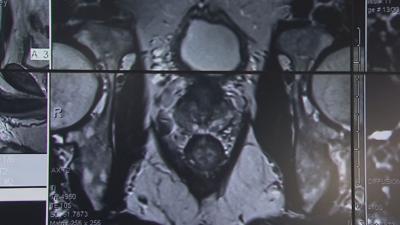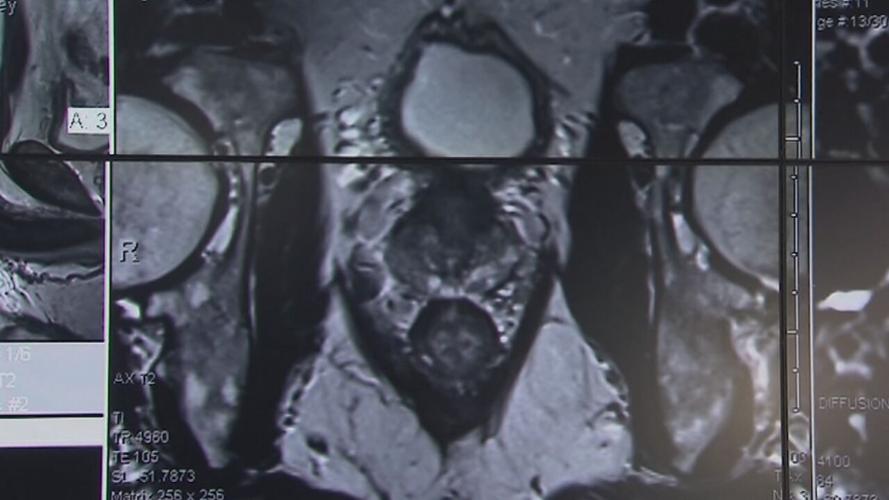LOUISVILLE, Ky. (WDRB) — Former U.S. President Joe Biden’s recent prostate cancer diagnosis is sparking renewed conversation among doctors and survivors about the importance of early detection and routine screenings for one of the most common cancers among men.
About one in eight men will be diagnosed with prostate cancer in their lifetime, according to the American Cancer Society. The disease typically develops later in life, and medical experts said early screenings can make a life-saving difference.
Dan DeSpain, a Louisville man, was diagnosed with prostate cancer at age 54.
“It’s not fun, but knowing what I know now, it’s like, yeah, I’ll do it,” DeSpain said. “They said I didn’t have time to do radiation or chemo because it was an aggressive cancer and that I needed to get it out.”
DeSpain underwent surgery and has been cancer-free for nine years. He credits early detection and support groups like Gilda’s Club for helping him recover and maintain a high quality of life.
Over the weekend, the White House confirmed that Biden, 82, has stage-four metastatic prostate cancer. Despite the seriousness of the diagnosis, experts said the disease is often treatable—especially when caught early.
“A prostate cancer diagnosis—while it is scary and can be life-altering—is not always a death sentence,” said Dr. Travis Spaulding, an oncologist at Norton Cancer Institute. “You hope that the biopsy shows the disease is caught early and can be treated effectively with radiation or surgery.”
The five-year survival rate for most prostate cancers is nearly 100%, and 95% of those diagnosed live at least another 10 years, according to the American Cancer Society.
Preventative steps include maintaining a healthy weight, regular exercise, and a balanced diet. Blood tests that measure prostate-specific antigen (PSA) levels are one of the key tools used in early detection, though doctors note that some cancers may not require immediate treatment.
Medical professionals recommend men begin discussing prostate cancer screenings with their doctor around age 50—or at 45 if there is a family history of the disease. Colonoscopies are also advised starting at age 45.
For DeSpain, cancer is no longer top of mind.
“That is at the bottom of the list of things to worry about at this point,” he said.
Top stories:
Preliminary investigation shows possible EF3 tornado tore through Laurel County, NWS says
Louisville restaurant on Eastern Parkway closing after 96 years
Man arrested after allegedly setting fires, throwing vases at Louisville police in standoff
Copyright 2025 WDRB Media. All Rights Reserved.














